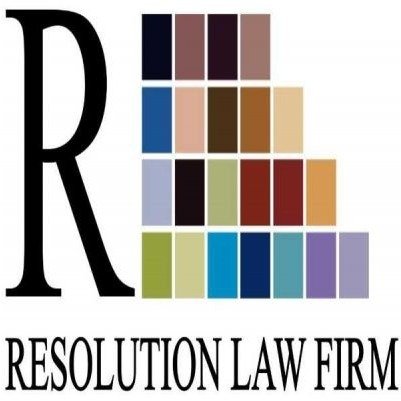Best Permanent Residency Lawyers in Lekki
Share your needs with us, get contacted by law firms.
Free. Takes 2 min.
List of the best lawyers in Lekki, Nigeria
About Permanent Residency Law in Lekki, Nigeria
In Nigeria, Permanent Residency is gained by foreigners who have legally lived within the country for a period of no less than fifteen years. This is largely controlled by the Nigeria Immigration Service which works in line with the Immigration law. The Permanent Residency document allows the holder to reside in Nigeria indefinitely while also preserving their original nationality.
Why You May Need a Lawyer
A lawyer is essential in navigating the complexities associated with Permanent Residency in Nigeria. Some scenarios where legal assistance can be beneficial include when you are struggling with the application process, facing deportation, or when your application is unexpectedly rejected. Lawyers can also be vital if you want to clarify the rules and implications of permanent residence or to ensure that your legal rights are thoroughly protected during the process.
Local Laws Overview
The key aspect of the local laws in regard to permanent residence in Nigeria is the Nigeria Immigration Act. This controls the entry and exit of persons in Nigeria, determines eligibility for Permanent Residency, stipulates the requirements, application process, the restrictions as well as the rights accorded to a Permanent Resident. Nevertheless, it is important to note that the laws are subject to change and interpretation, hence the need for legal consultation.
Frequently Asked Questions
1. Who is eligible for Permanent Residency in Nigeria?
A foreigner who has legally lived in Nigeria continuously for 15 years becomes eligible to apply for Permanent Residency.
2. What are the benefits of Permanent Residency?
The benefits of Permanent Residency include legal rights to live, work, and study in Nigeria, protection under Nigeria's legal system, and access to all forms of public services provided by the government.
3. Can a Permanent Resident be Deported?
Yes, a Permanent Resident can be deported if they commit actions that contravene Nigeria's immigration laws, or any other law that is deemed serious.
4. How long does the application process take?
The duration of the application process can vary, but it usually takes several months from the time of submission to approval. There may be additional time required for processing documents or addressing any issues.
5. What rights does a Permanent Resident have in Nigeria?
A Permanent Resident in Nigeria has the right to live, work, and study in Nigeria. They are also protected under the country's legal system and are entitled to public services provided by the government. However, they do not have the right to vote or hold an elective office.
Additional Resources
The Nigeria Immigration Service provides detailed information about immigration laws and Permanent Residency in Nigeria. Their website is a valuable resource for pertinent forms, information on changes in immigration law, and contact information for further inquiries. A Legal Practitioner with particular expertise in immigration law can also be of significant help.
Next Steps
If you need legal assistance in Permanent Residency, consider reaching out to a legal practitioner specializing in immigration law. They would provide comprehensive guidance and assistance throughout the process. Furthermore, get in touch with the Nigeria Immigration Service for detailed information regarding the requirements and steps in securing Permanent Residency in Nigeria.
Lawzana helps you find the best lawyers and law firms in Lekki through a curated and pre-screened list of qualified legal professionals. Our platform offers rankings and detailed profiles of attorneys and law firms, allowing you to compare based on practice areas, including Permanent Residency, experience, and client feedback.
Each profile includes a description of the firm's areas of practice, client reviews, team members and partners, year of establishment, spoken languages, office locations, contact information, social media presence, and any published articles or resources. Most firms on our platform speak English and are experienced in both local and international legal matters.
Get a quote from top-rated law firms in Lekki, Nigeria — quickly, securely, and without unnecessary hassle.
Disclaimer:
The information provided on this page is for general informational purposes only and does not constitute legal advice. While we strive to ensure the accuracy and relevance of the content, legal information may change over time, and interpretations of the law can vary. You should always consult with a qualified legal professional for advice specific to your situation.
We disclaim all liability for actions taken or not taken based on the content of this page. If you believe any information is incorrect or outdated, please contact us, and we will review and update it where appropriate.









